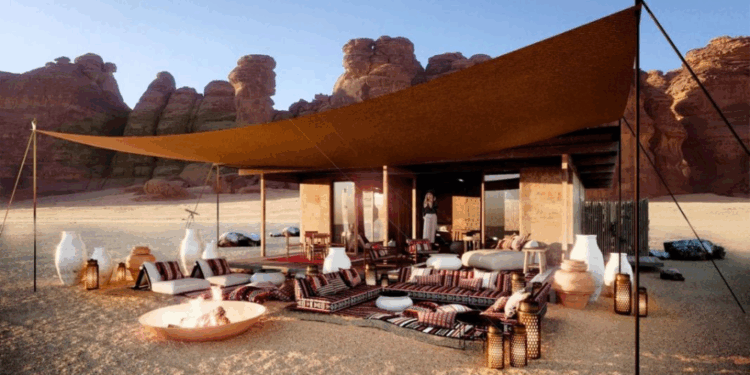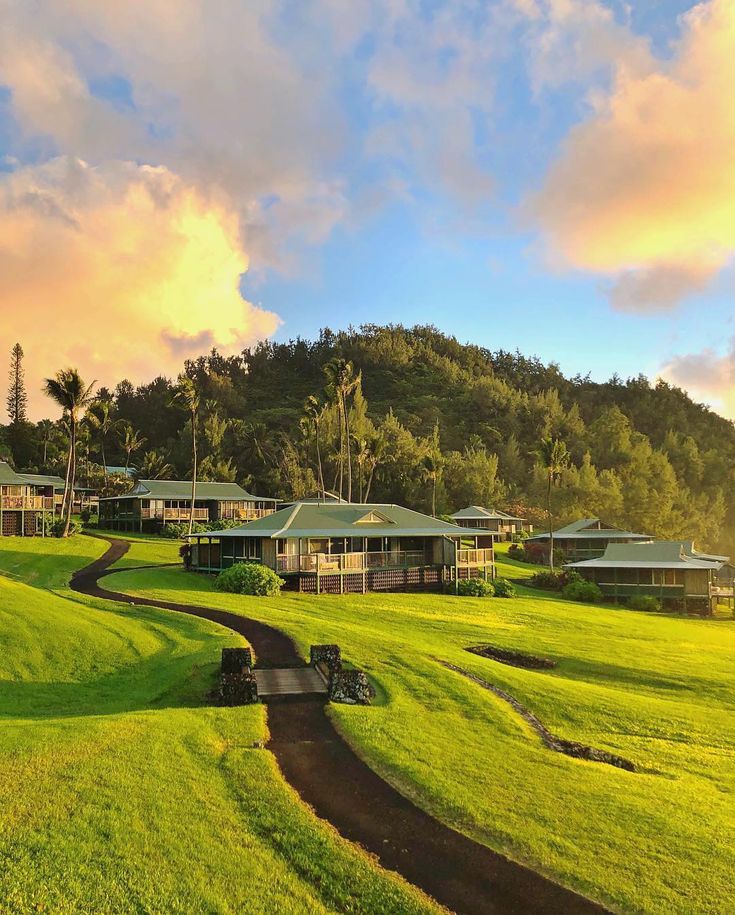Experiential Stays: Beyond Accommodation
The very essence of travel is undergoing a profound and exhilarating metamorphosis. For a rapidly growing segment of discerning global voyagers, the concept of a mere “place to stay” has become antiquated, giving way to a far more compelling and immersive ideal: the experiential stay. What once sufficed as comfortable lodging is now transforming into a pivotal component of the journey itself, offering opportunities for authentic engagement, profound personal growth, and unforgettable memories that resonate long after the bags are unpacked. This extensive exploration will delve deep into the burgeoning trends defining experiential stays, examining how travelers are actively seeking to transcend traditional accommodation in favor of richer, more meaningful interactions with destinations, cultures, and even themselves. We will dissect the driving forces behind this shift, the diverse manifestations of experiential lodging, and the critical role these unique stays play in shaping the future of the travel industry.
The Paradigm Shift: From Beds to Bonds and Beyond
For decades, the primary function of accommodation was largely utilitarian: a safe, comfortable, and convenient place to sleep, shower, and store belongings. Hotels, resorts, and guesthouses competed on amenities, location, and price. However, a significant psychological and cultural shift is now in full swing. Modern travelers are increasingly driven by a desire for narrative, seeking to collect experiences, not just souvenirs. This profound shift is fueled by a collective longing for authenticity, a yearning for genuine connection, and a growing appreciation for the transformative power of immersive engagement.
A. The Primacy of Authenticity and Local Connection
Today’s traveler actively seeks to peel back the layers of superficial tourism and delve into the genuine fabric of a destination. They are no longer content with merely observing from afar; they want to participate, learn, and live like a local, even if for a brief period. This manifests in several compelling ways within the realm of experiential stays:
- Deep Cultural Immersion: This goes far beyond a guided city tour. It involves staying in properties that are intrinsically linked to the local culture. Imagine a stay in a beautifully restored Riad in Marrakech, where you learn traditional Moroccan cooking from the family matriarch, or a guest house nestled within a centuries-old village in Provence, where you partake in local festivals and daily life. These aren’t just hotels; they are gateways to understanding.
- Farm-to-Table Stays: A growing trend sees travelers opting for accommodations directly on working farms or agricultural estates. Guests can participate in daily chores, harvest produce, learn about sustainable farming practices, and then enjoy meals prepared directly from the land they’ve helped cultivate. This provides an unparalleled connection to the local food ecosystem and rural life.
- Artisanal Workshops and Creative Retreats: Many experiential stays are now built around learning a new skill or honing an existing one. Picture a stay in a charming Tuscan villa that includes daily fresco painting classes with a local artist, or a secluded cabin in a remote forest offering intensive writing workshops or pottery lessons. These integrate personal development with the travel experience.
- Community-Based Tourism Initiatives: This involves accommodations directly owned, managed, or significantly benefiting local communities. Staying in these places means your travel dollars directly support the local economy, traditional livelihoods, and cultural preservation efforts, fostering a sense of responsible and ethical engagement. Examples include tribal homestays, cooperative-run guesthouses, or eco-lodges developed by indigenous communities.
B. The Embrace of Unique Narratives and Historical Context
Experiential stays often carry rich stories within their walls, offering travelers a chance to step back in time or inhabit a unique narrative. This is about more than just old buildings; it’s about the tangible connection to history and the human journey.
- Heritage Stays: These are accommodations meticulously restored within historic buildings – perhaps a medieval castle, a colonial-era mansion, or a repurposed lighthouse. Guests don’t just sleep there; they live within history, often with guided tours, historical reenactments, or storytelling sessions about the property’s past. The creaking floorboards and ancient stone walls become part of the experience.
- Themed Accommodations: Beyond typical hotels, some stays are designed around a specific concept or fantasy. This could be a treehouse village inspired by fantasy literature, a submarine hotel offering underwater views, or a meticulously recreated pioneer cabin. These are designed to transport guests into a completely different world, blurring the lines between accommodation and entertainment.
- Pop-Up and Ephemeral Stays: Reflecting a desire for exclusivity and novelty, some experiential accommodations are temporary. Think of luxury glamping sites that appear only for specific festivals or events in remote, breathtaking locations, or mobile hotels that traverse unique landscapes, offering a fleeting but unforgettable experience. Their temporary nature adds to their allure and sense of adventure.
C. Wellness and Transformative Journeys as Core Components
The modern traveler often seeks personal growth and rejuvenation through their journeys. Experiential stays are increasingly designed to cater to holistic well-being, offering more than just spa treatments.
- Integrated Wellness Retreats: These accommodations are specifically designed with wellness as their central ethos. Beyond a spa, they offer comprehensive programs including daily yoga and meditation, personalized dietary plans, mind-body workshops, and access to wellness coaches or therapists. The architecture and natural surroundings are often chosen to enhance tranquility and healing.
- Digital Detox Escapes: In a world of constant connectivity, the ultimate luxury for many is to completely disconnect. Experiential stays often offer specialized programs in remote, serene locations where technology is intentionally limited, encouraging guests to reconnect with nature, themselves, and their fellow travelers through shared activities.
- Nature Immersion and Forest Bathing Stays: Accommodations nestled deep within natural environments, such as forests, mountains, or by the sea, encourage guests to immerse themselves fully in the natural world. Activities might include guided forest bathing (Shinrin-yoku), outdoor meditation, wildlife tracking, or foraging, fostering a profound connection to the earth.
The Diverse Landscape of Experiential Accommodation Types
The evolution of experiential stays has given rise to an incredibly diverse array of accommodation types, each offering a unique proposition for the adventurous and discerning traveler. These go far beyond the standard hotel room or even a conventional Airbnb.
A. Regenerative and Eco-Conscious Lodges
These properties represent the pinnacle of sustainable and ethical tourism, actively striving not just to minimize their footprint but to leave their host environments better than they found them.
- Zero-Impact Design: Built using locally sourced, renewable materials, often incorporating traditional architectural techniques that minimize environmental disturbance. They might utilize composting toilets, rainwater harvesting, and solar/wind power exclusively.
- Conservation and Research Hubs: Many eco-lodges are directly involved in, or fund, scientific research and conservation projects in their surrounding ecosystems. Guests can often participate in these efforts, such as wildlife monitoring, reforestation programs, or marine conservation dives, turning their stay into an act of environmental stewardship.
- Community Empowerment Models: These lodges prioritize employing local staff at fair wages, sourcing all food and supplies from local producers, and investing a significant portion of their profits back into community development projects (e.g., schools, healthcare, infrastructure), ensuring tourism directly benefits the host population.
B. Boutique Hotels with Hyper-Local Curation
While not always in remote locations, these city-center or historic district boutique hotels distinguish themselves by offering an intensely curated and localized experience, acting as cultural hubs.
- Story-Driven Design: Every element of the hotel’s design, from the artwork to the furnishings, tells a story about the local culture, history, or artistic scene. They often collaborate with local artists and designers to create a truly unique aesthetic.
- Curated Local Experiences: These hotels excel at connecting guests with authentic local experiences. This could involve private gallery tours with the artist, exclusive access to local culinary workshops, guided street art tours led by a local expert, or tickets to exclusive cultural performances that are difficult to access otherwise. They act as a personal key to the city’s hidden gems.
- Food and Beverage as Cultural Narratives: Restaurants and bars within these hotels are often designed to be extensions of the local culinary scene, showcasing regional ingredients, traditional cooking methods, and emerging local talent. They might host pop-up dinners with local chefs, tasting menus focused on local produce, or mixology classes using regional spirits.
C. Unique and Out-of-the-Box Accommodations
This category embraces creativity and novelty, offering stays that are themselves destinations, providing a truly memorable and often whimsical experience.
- Treehouses and Bubble Domes: These accommodations offer guests the chance to sleep suspended in the canopy of a forest or under the stars in a transparent dome, blending the thrill of outdoor living with unexpected comfort. They provide privacy and a profound connection to nature.
- Repurposed Historical Transport: Imagine sleeping in a beautifully restored vintage train carriage, a luxury houseboat, or even a converted jumbo jet. These stays offer a unique blend of nostalgia, innovative design, and often a fascinating historical context.
- Ice Hotels and Salt Hotels: Extreme and climate-specific accommodations built entirely from ice and snow (seasonal) or salt (in arid regions) offer a surreal and utterly unique experience. They are testaments to human ingenuity and provide immersive encounters with extreme environments.
- Underground and Cave Stays: Delving beneath the surface, these accommodations are often carved into rock formations or repurposed mines, offering unique architectural forms, natural insulation, and an unparalleled sense of seclusion and quiet.
The Enabling Role of Technology and Seamless Personalization
While the heart of experiential travel lies in human connection and authentic interaction, technology plays an indispensable role in facilitating, enhancing, and personalizing these unique journeys. It’s not about replacing human interaction, but about amplifying its possibilities.
A. Intelligent Booking Platforms and Curated Discovery
Beyond generic booking sites, specialized platforms are emerging that cater specifically to experiential stays, often leveraging AI and advanced filtering.
- AI-Driven Recommendation Engines: These platforms use machine learning to analyze traveler preferences, past bookings, and even social media activity to suggest highly personalized experiential stays that align with individual interests, desired level of immersion, and travel style.
- Visual Storytelling and Immersive Content: High-quality photography, virtual reality tours, and engaging video content allow travelers to virtually explore unique accommodations and their surrounding experiences before booking, creating a stronger sense of anticipation and ensuring a good fit.
- Direct Booking with Experience Add-ons: Platforms facilitate direct communication with property owners or experience providers, allowing travelers to customize their stay with specific workshops, tours, or activities directly at the point of booking, streamlining the planning process.
B. On-Site Technology for Enhanced Immersion
Once at the experiential stay, technology can subtly enhance the guest experience, providing convenience and deeper engagement without being intrusive.
- Personalized Digital Concierge Apps: Dedicated property apps can offer guests a wealth of information and services: digital maps for exploring the property and surrounding area, direct messaging with staff for activity bookings or special requests, and curated local recommendations based on real-time events.
- Augmented Reality for Guided Exploration: Imagine an AR app that, when pointed at a specific plant in a rainforest eco-lodge, provides instant information about its species, medicinal uses, or cultural significance. Or an app that overlays historical facts onto ancient ruins surrounding a heritage stay.
- Seamless Connectivity in Remote Locations: For many experiential stays in remote areas, robust satellite internet or advanced mesh Wi-Fi networks are crucial, allowing guests to stay connected (if they choose) for essential communication or sharing their unique experiences, without disrupting the natural setting.
C. Leveraging Data for Continuous Improvement and Tailored Offerings
Property owners and experience providers are increasingly utilizing guest data (anonymized and with consent) to continuously refine their offerings and personalize future stays.
- Post-Stay Feedback Analysis: Detailed feedback helps identify popular experiences, areas for improvement, and emerging trends, allowing properties to adapt and innovate their experiential offerings.
- Predictive Personalization: For repeat guests, data can be used to anticipate preferences, pre-stock specific items, or offer bespoke activities based on their previous interests, making each return visit even more personalized and memorable.
- Targeted Marketing of Unique Experiences: Understanding guest demographics and preferences allows properties to effectively market their most unique and appealing experiential components to the right audience.
The Future Trajectory: Innovation and Evolution
The trajectory of experiential stays points towards even greater levels of personalization, sustainability, and transformative impact. This segment of the travel industry is dynamic, responding rapidly to evolving traveler desires and global consciousness.
A. Hyper-Niche and Micro-Experiences
The future will see an explosion of highly specialized, niche experiential stays catering to very specific interests and passions.
- Astrotourism Stays: Accommodations specifically designed for stargazing, located in dark-sky reserves, offering telescopes, expert guides, and dedicated viewing platforms.
- Culinary Deep Dives: Beyond cooking classes, these could be stays focused entirely on a single ingredient (e.g., olive oil harvesting and tasting, viticulture and winemaking from grape to glass) or a specific regional cuisine, involving hands-on participation in every stage of production.
- Wildlife Conservation and Research Participation: Stays where guests actively participate in wildlife tracking, data collection, or animal rehabilitation efforts alongside professional researchers and conservationists, offering a profound sense of purpose.
B. Regenerative Tourism as the Gold Standard
The movement towards regenerative travel, where tourism actively enhances the environment and communities, will become a defining characteristic of truly aspirational experiential stays.
- Impact Measurement and Transparency: Properties will increasingly measure and transparently report their positive environmental and social impacts, allowing travelers to make informed choices based on their values.
- Direct Contribution Models: Stays will integrate direct pathways for guests to contribute financially or through volunteerism to local conservation or community projects as part of their package, creating a symbiotic relationship between traveler and destination.
- Educational Components: Guests will be educated on the local ecology, cultural heritage, and socio-economic challenges, fostering a deeper understanding and appreciation that extends beyond their stay.
C. Blurring the Lines: Live-Work-Explore Concepts
As remote work becomes more common, experiential stays will increasingly cater to those who wish to combine work with immersive travel.
- Co-Living and Co-Working Experiences: Properties designed for longer stays, offering shared communal spaces, high-speed internet, and organized social and cultural activities, allowing digital nomads to connect with both local communities and fellow travelers.
- Learning Sabbaticals: Structured long-term stays (e.g., a month or more) focused on acquiring a new skill, language, or delving into a specific area of study, integrated with local cultural experiences and excursions.
- “Pop-Up Communities”: Temporary, curated communities in unique locations where individuals can live, work, and engage in shared experiences, fostering a sense of belonging and exploration simultaneously.
Conclusion
The era of experiential stays marks a significant evolution in how we travel and interact with the world. It signals a shift from passive consumption to active participation, from fleeting impressions to lasting memories, and from mere accommodation to profound engagement. These stays are not just about where you lay your head; they are about the stories you collect, the skills you learn, the connections you forge, and the personal transformations you undergo. As travelers increasingly seek authenticity, purpose, and deeper meaning in their journeys, experiential stays will continue to innovate, evolve, and become the gold standard for truly unforgettable adventures, turning every trip into a rich, personal narrative. The future of travel is not just about visiting places; it’s about living them.









